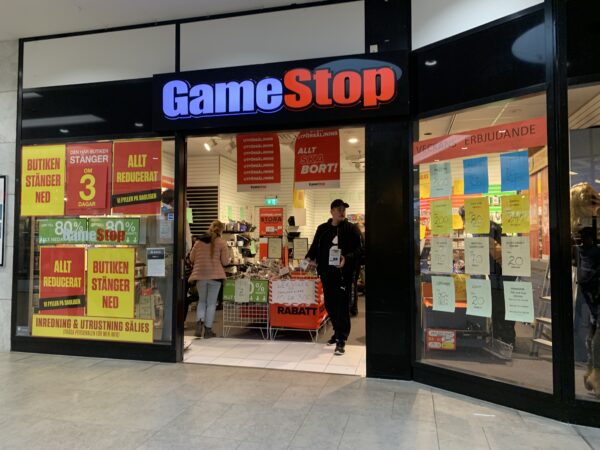
Elon Musk has grilled trading app Robinhood’s co-founder, Vladimir Tenev, about why it limited users to only being able to buy a small number of shares in some companies.
The move came after GameStop’s stock surged amid a campaign to cause hedge funds large losses.
Vladimir Tenev denied “conspiracies” that he was trying to help the hedge funds.
Instead he blamed a demand that Robinhood provide a $3 billion security deposit at short notice.
The interview was conducted on the audio-only social network Clubhouse.
GameStop Stocks Fall 60 Percent After Restrictions
Tesla boss’ 90-minute appearance was a major coup for Clubhouse, which is currently in a “beta” testing phase and requires users to be invited to access its platform.
It allows people to join private rooms for conversations, but participants are capped at 5,000.
However, fans streamed the interview on YouTube and overflow rooms on the platform, as Elon Musk’s appearance attracted unprecedented attention.
Elon Musk also spoke about travel to Mars, Bitcoin and brain implants during his session.
Robinhood curbed buying of GameStop and some other shares last week.
Unlike most trading platforms, it does not charge a commission for letting users buy and sell shares. Instead it makes money by selling data on those deals to others before they go through.
Some hedge funds have lost out on the rise in GameStop’s shares because they had shorted the stock. This is where an investor tries to make money by betting a company’s share price will fall.
Elon Musk questioned to what degree Robinhood was “beholden to” Citadel Securities, which is its biggest client. Citadel has suffered losses as a result of an investment in a hedge fund that had taken a large short position on GameStop.
He has previously been critical of short selling, claiming it to be a “legal” scam.
Vladimir Tenev acknowledged that there had been “a rumor that Citadel or other market makers kind of pressured us into” putting restriction on trades, but added the claim was “just false”.
“Robinhood stands for, you know, democratizing access to stocks,” he said on Clubhouse.
“We want to give people the access… but we had no choice in this case, we had to conform to our regulatory capital requirements.”
Elon Musk asked in response: “Did you sell your clients down the river, or [did] you have no choice?”
Vladimir Tenev repeated that Robinhood had to comply with financial requirements.
He said this involved an order from the National Securities Clearing Corporation – a clearing house used by the company – to provide “around $3bn” to back up its trades. He added the demand was later reduced to $700 million.
Vladimir Tenev conceded, however, that Robinhood needed to be more transparent.
“We were able to open and serve our customers,” he said, adding that Robinhood had raised more than $1bn within 24 hours.
“When we do open [on Monday]… we’ll be able to kind of relax the stringent position limits that we put on these securities on Friday.”
Elon Musk also came out in support of Bitcoin, saying he thought it was on “the verge of getting a broad acceptance” by conventional finance.
Bitcoin has surged in value in recent months, but some experts say it is volatile and will crash soon.
Elon Musk also said human travel to Mars will be possible within five-and-a-half years – and outlined his vision to relocate some humans there from Earth.
He also said he believed he could get the journey time to the Red Planet down from six months to one month.
Another of Elon Musk’s projects, Neuralink, received attention in the interview.
The start-up explores ways to connect the human brain to a computer interface.
Elon Musk said he hoped the technology could be used, in early applications, for humans with serious brain injuries.
